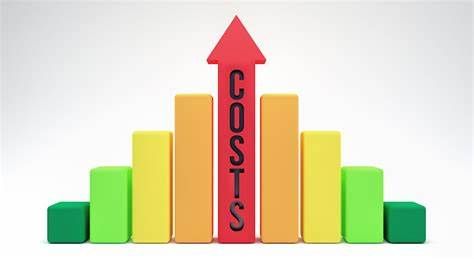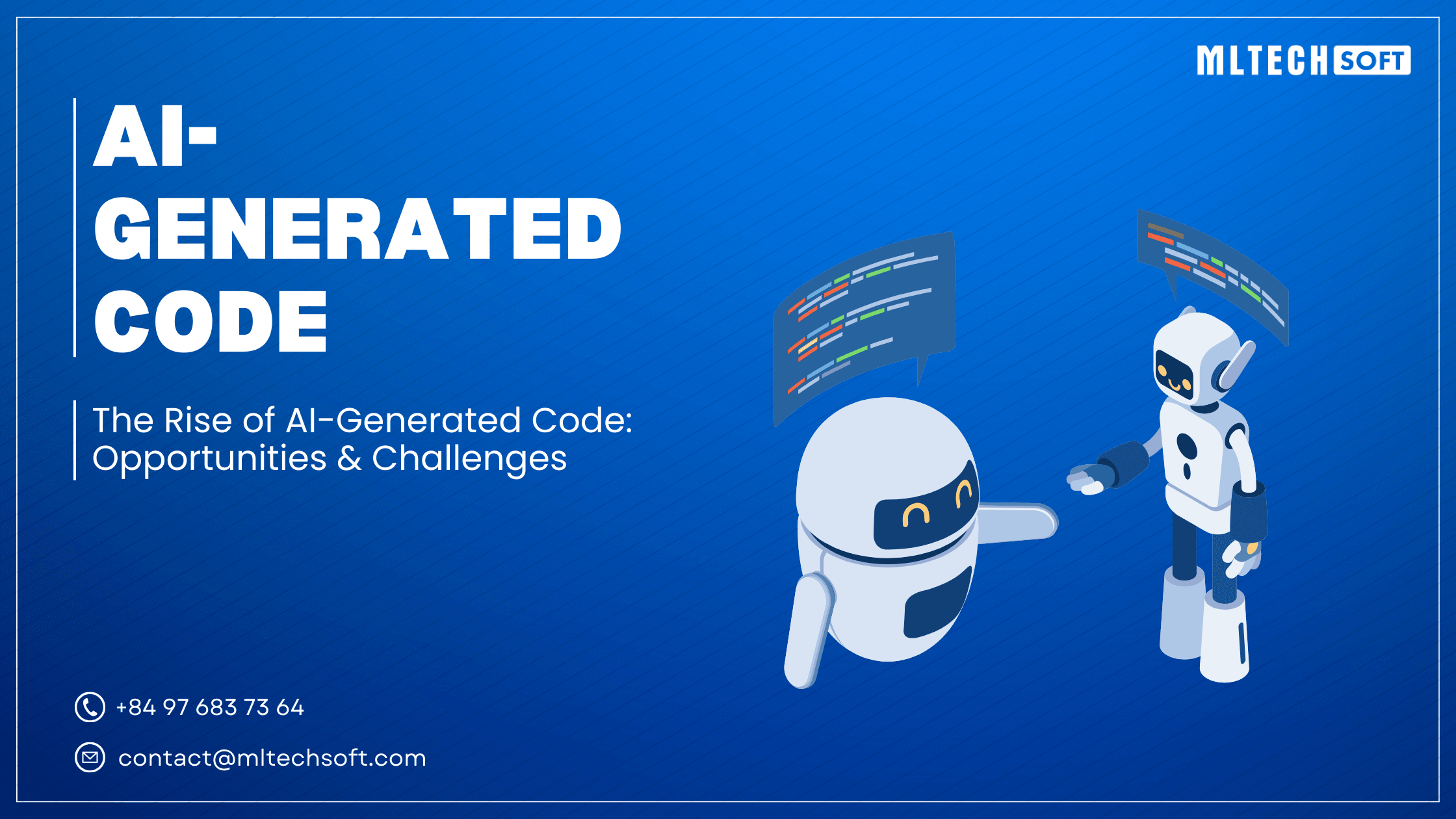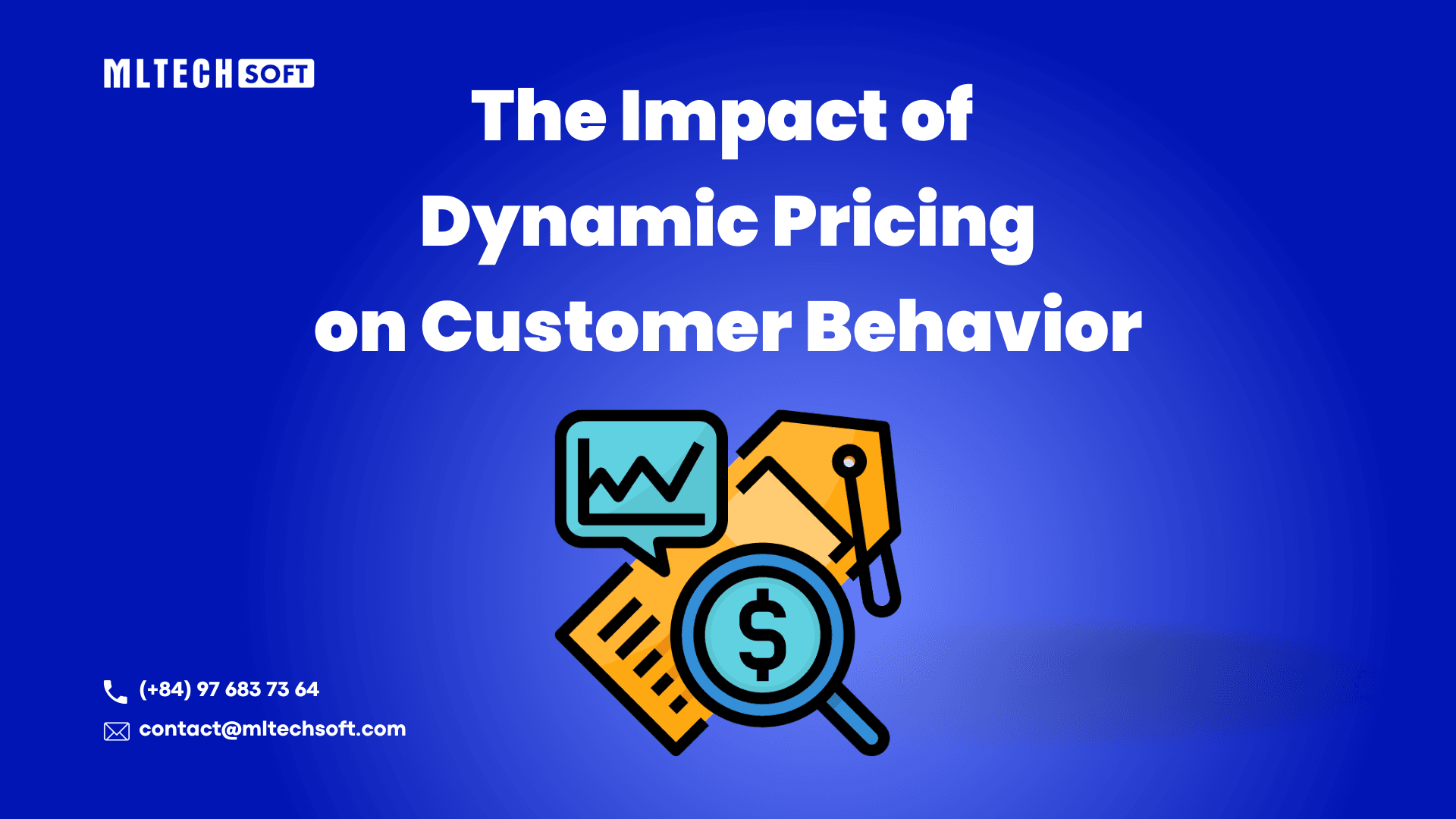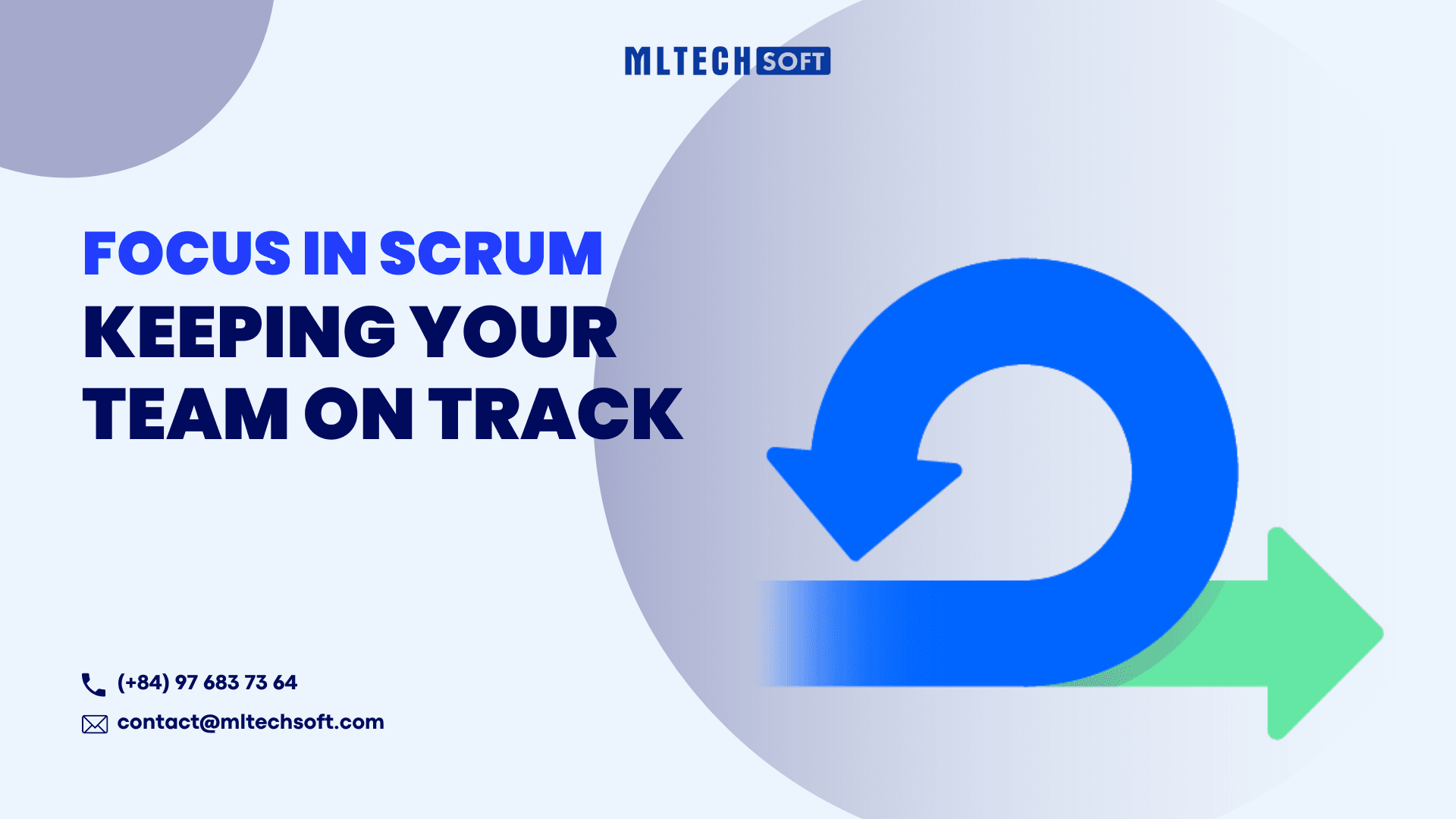Scroll down for more
Revolutionizing eCommerce Using Blockchain Technology

For centuries, cutting-edge technological ideas have reshaped the customer experience. For instance, electronic commerce now controls a significant portion of global commerce and has provided customers with a brand-new method of shopping.
For more than a decade, customers have been enjoying the new landscape. However, there appears to be room for improvement, which blockchain is expected to fill. We will cover everything there is to know about blockchain and eCommerce, as well as how the two have improved the customer experience.
Keep reading to explore using blockchain in eCommerce with MLTech Soft.
1. How Does Blockchain Work with eCommerce?
Blockchain, as already said, is a digital ledger where, in order to keep all of this information about transactions and customers without running the danger of a data breach, blockchain emerges as the ideal platform option.
Each block of the blockchain contains a complete piece of information. It is nearly impossible for a single entity to modify any of these blocks. Any change to the blockchain's operating principle could take hundreds of years or perhaps longer.
In order to keep all of this information about transactions and customers without running the danger of a data breach, blockchain emerges as the ideal platform option. Each block of the blockchain contains a complete piece of information.
It is nearly impossible for a single entity to modify any of these blocks. Any change to the blockchain's basic operating theory could take hundreds of years or possibly longer.

2. Use Cases of Blockchain in eCommerce
Let’s have a glance at the use cases of blockchain in eCommerce and how it is transforming the industry.
Peer-To-Peer Payments
The monetary transaction is a core part of the eCommerce buying process. Currently, most of the transactions are made via banks, where these financial institutions play the intermediary role.
Here, the transaction speed entirely depends on this intermediary’s capabilities. Similarly, the safety of payment, transaction speed, return of payment, and all the other aspects depend on the intermediary.
So, blockchain in ecommerce payment replaces the conventional process of smart contracts. With blockchain, the payment process becomes more decentralized; thus, no intermediary controls your monetary transactions.
Similarly, your payment is transferred from your side directly to the merchant without the interference of any middle party. So your transactions are secure, faster, and better managed. Kudos to the technology; we have transparency and reliability in our monetary transactions.

Personalized Product Offerings
Providing a personalized experience to the customers is key to establishing a loyal consumer base in this competitive landscape. However, merchants need essential information about their customers, such as their purchasing habits, preferences, and needs.
Blockchain integration in eCommerce helps capture this kind of crucial insight and other information about the customers on its secure ledger. The upper hand is that customers have complete control over their data and can choose the merchants they want to share this information with. So, users don’t have to think twice before sharing their information, as their data is highly secured on the blockchain. At the same time, merchants can use this insight to offer personalized offers and discount coupons to their customers.
Reliable Product Information
Customers look for trustworthy product information before making a purchase because product information is one of the deciding factors. For millions of online shoppers, the best place to learn about a product is in the product description. The customer buys the product if the description meets their needs, and vice versa.
The product description is even more trustworthy for customers thanks to blockchain. The idea makes the information more reliable, and customers can check the relevant certifications to see if the product is of high quality and original. Customers can now shop for expensive items like jewelry, luxury goods, and designer and branded clothing online with greater confidence thanks to blockchain's core competency.
Verified Customer Reviews
Customer reviews are the best source for the real-time quality of a product. Users rely on customer reviews to make decisions about their purchases. However, the competitive landscape has yet to spare this factor; thus, even reviews are rarely reliable nowadays. Merchants publish fake reviews, while others post negative reviews on their competitors’ products.
So, blockchain delivers the ability to verify product reviews as well as modify the logic behind publishing and creating the reviews. Thus, a new industry standard for the review concept is established that is more reliable, genuine, and trustworthy.
3. Benefits of Blockchain in eCommerce
When blockchain and eCommerce are integrated, it delivers many benefits to both the product providers and the receiver. A range of processes is streamlined at once, providing a seamless experience to relevant stakeholders. Let’s have a look at some of the significant benefits of blockchain in eCommerce.
Enhanced Security
The fact that blockchain technology is more secure than any other concept we know of is one of its main advantages. There is no chance of a data breach or malicious activity affecting the customer information that is stored on the blockchain digital ledgers. When data is stored on the blockchain, customers have full control over the information. The customer even has the option of choosing which merchants to share the information with and which not to.
Fraud Prevention
Phishing is a prominent fraudulent activity that often affects the reliability of users on eCommerce platforms. Here, the hackers collect users’ login credentials and use them for various fraudulent tasks such as online fraud, counterfeit goods, cross-border shopping, and more.
Blockchain helps control these fraudulent activities to a significant extent. The tamper-proof record of transactions helps ensure that all transactions on the platform are legitimate and accountable.
Product Authenticity
As any information stored in the blockchain is difficult to change or delete, the product description provided by the merchant becomes more authentic. At the same time, transparency in the supply chain enhances customer product authenticity. So, the users can rely on the product information provided by the merchant to make their buying decision.
No intermediaries
Blockchain eliminates all intermediaries from the process. The information is delivered from the customer to the merchant, and payment is transferred directly from the buyer to the seller.
It not only transforms the security of the process but also makes it faster. Whether making the payment or claiming the refund, transactions are completed within seconds.
Better Tracking of Parcels
A big part of eCommerce is logistics. However, significant problems have occurred due to the inefficiency of inventory tracking, as merchants and platforms have to rely on third-party delivery services. Blockchain here brings wonder by enhancing the tracking capabilities for logistics, and one can easily track the exact location of a parcel.
4. Real-time implementation of Blockchain in eCommerce
Blockchain technology has already been used by well-known eCommerce platforms to improve the user experience. Consider the following case studies:
Amazon Managed Blockchain
When it comes to e-commerce platforms, Amazon is always on our list. The platform is known for its creative landscape applications because it is the industry leader. The company has continuously worked to improve the efficiency of online shopping, whether through the use of blockchain in the supply chain or the use of augmented and virtual reality (AR/VR) for a better customer experience.

The company has observed for a considerable amount of time the difficulty of tracking and tracing, in which customers require greater access to determine the precise location of their order. The outdated paper process and disjointed data silos of today's supply chain slow down the process.
As a result, Amazon is prepared to implement Blockchain technology into its supply chain for improved product tracking. The customer will be able to view the order's status and even its specifics from the manufacturing stage.
The shared digital ledger for information entry will be shared by all stakeholders, including suppliers, manufacturers, regulators, logistics providers, wholesalers, retailers, and customers.
As a result, there won't be a single owner or authority to direct the process. Instead, current product information will be provided by each stakeholder. Thus, the customer can access the product's real-time position without a central authority's interference.
eBay to introduce Libra Cryptocurrency
eBay has been operating in the eCommerce landscape for multiple decades and has introduced new updates from time to time. Recently, the firm has joined hands with the Libra Association and is planning heavily to introduce Libra cryptocurrency. The new digital currency is expected to be used for all kinds of transactions on the platforms.
With Libra Cryptocurrency, the firm aims to establish a trusted, accepted, and stable cryptocurrency that can transform the experience in a marketplace in a significant manner. With this cryptocurrency in place, the buyers will have access to inventory offered by sellers from different corners of the world, and at the same time, they will be able to make the payment in their preferred currency. Also, the transaction will be completed at a fraction of today’s transaction cost, making the deals more profitable for the businesses.
5. Challenge of Implementing Cryptocurrency in eCommerce
Blockchain is still in its infancy, despite its tremendous effectiveness in improving eCommerce transaction capabilities and operations. The use of cryptocurrency in eCommerce presents numerous obstacles. These difficulties include, but are not limited to:
Lack of adoption
Blockchain efficiency can only be utilized when all process stakeholders support it. Take, for instance, the scenario in which the customer desires real-time order tracking. The supplier, manufacturer, warehouse manager, wholesaler, and retailer must then upload the most recent data to the blockchain. However, blockchain adoption is still in its infancy and has a long way to go. The technology can only be beneficial if it is widely adopted.
Rising cost of blockchain implementation
Blockchain implementation requires a significant monetary investment, and as long as the business owner is not willing to invest a large sum, the implementation cannot be executed. Undoubtedly, some of the solutions in blockchain are free; still, it requires a good investment to hire skilled software engineers specializing in blockchain development.

Scalability
Bitcoin can support only 3–7 transactions every second, while Ethereum supports only 15–20. So, widespread adoption of blockchain needs to improve before being implemented in large-scale businesses. So, the blockchain can still not simultaneously serve a large user base, which is a big challenge for adopting blockchain in eCommerce.
Rules and legislations
Cryptocurrencies have received negative attention in different markets, and some countries have even imposed restrictions on using them for various purposes. Bitcoin is banned in numerous countries, while it is regulated with little success in other countries. So, before becoming a global concept in the eCommerce industry, these rules and legislation need extensive alterations.
Low workforce availability
With increasing familiarity with the NFTs and blockchain, the demand for relevant skills and talented people has risen by 300%. The situation has led to labor market issues. The companies are fighting hard to attract the right talent, and for the same reason, some are even offering more than $1 million annually to workers in this job category. Still, there needs to be more blockchain experts on the market, which makes the deployment more challenging.
Other challenges
Other challenges cum hurdles in implementing blockchain in eCommerce are lack of standardization, integration with legacy systems, interoperability, vital private issues, etc.
6. Possible Future Scenario of Blockchain in eCommerce
The blockchain market size has been valued at $4,982 million in 2021, which is expected to reach a valuation of $67,385 by 2026. The figures calculate a CAGR of more than 68.4% in 5 years. Undoubtedly, the blockchain concept is becoming familiar to businesses and being implemented to transform the user experience. So, we can expect that-
Blockchain will be a significant medium for storing and sharing customer information, putting more data control in the hands of users.
The cryptocurrency might attract a more comprehensive use case as a globally accepted mode of payment without the need for currency exchange. The tracking and tracing of parcels might be equipped with blockchain technology, providing real-time insight into the current position of the package.
The reliability of people to purchase luxury and expensive commodities from online platforms will increase as blockchain will ensure the authenticity of the information.
The payment and refund times will decrease gradually with blockchain technology in place.
Conclusion
A novel idea to improve the customer experience and take the process to the next level is blockchain integration in eCommerce. First, the payment is made without a central authority because it is processed and controlled by the blockchain.
As a result, payment speed and efficiency improve. In addition, storing supply chain data on a blockchain's digital ledger makes it more user-friendly and real-time. In a similar vein, the information of customers is being stored on the blockchain, enhancing data security.
Content
Get our blog
Want the latest and greatest from our blog straight to your inbox? Chunk us your details and get a sweet weekly email.
Read more in our blog

Project Management
The Rise of AI-Generated Code: Opportunities & ChallengesExplore how AI-generated code is transforming programming with tools like GitHub Copilot and AlphaCode. Learn about the opportunities it offers—faster development, accessibility—and the challenges like security and ethics we must address.

Project Management
The Impact of Dynamic Pricing on Customer BehaviorExplore the impact of dynamic pricing on customer behavior and learn how to implement effective pricing strategies.

Project Management
Focus in Scrum: Keeping Your Team on TrackDiscover effective strategies to maintain focus within your Scrum team, overcome common challenges, and boost productivity.
MLTECH SOFT